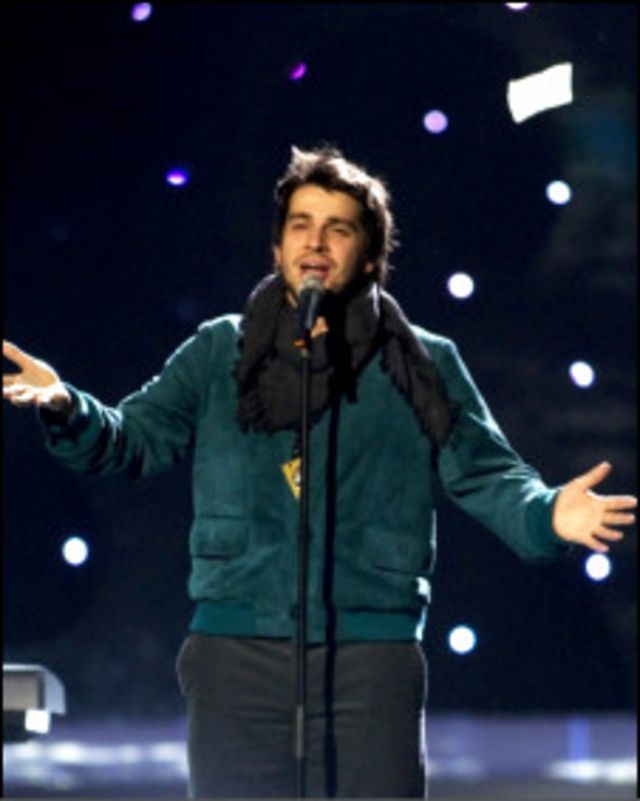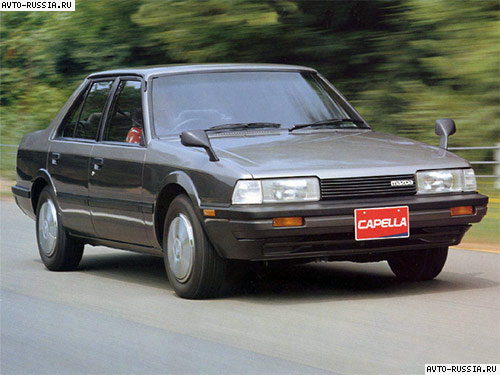The Russian participant in the Eurovision Song Contest-2010, Peter Tsul, told the BBC Russian service to Rafael Saakov, due to which he hopes to win.
Petr Puli: The main thing in our room is a song
The BBC News Russian application is available for iOS and Android. You can also subscribe to our channel in Telegram.

Peter Nalich counts on support not only Russians
In Oslo, everything is ready for the beginning of the Eurovision Musical Competition-2010. The first of the two semi -finals will be held on May 25 (final – May 29), and the participants in the competition have already held their first rehearsals in the Norwegian capital. Among them – representing Russia Musical Collective Potra Potar with the song Lost and Forgotten.
The official program among Eurovision participants 2010 includes the Peter Nalitch and Friends group (Peter Naluch and Friends) – it was the name that the musicians preferred for the international audience. The leader of the group Peter Puli In an interview with the BBC Russian correspondent Rafael Saakov He shared the premium expectations from the competition.
BBC: Peter, what are the first impressions of the city in which the next Eurovision final will be held, and the scenes on the Teenor Arena?
Peter Nalich: The impressions are good. Beautiful city, nice, soft and responsive people. From the point of view of the organization, everything goes in order, with good timing.
Well -wiser people also work in the arena, listen to all the wishes. We solved many important issues for us on stage. In particular, in monitoring of sound, a good scheme was developed, in which there is a dry accurate sound and a connection with the hall, a thicker phrase.
All sorts of interesting details rolled on stage – with a falling snow and a photograph flying out of his hand.
BBC: There was information that artificial snow prevented you from performing a song.
P.N.: No, these are lies, rumors that spread. The snow is completely normal, just at the first oak, it fell in the face, after which the organizers changed the angle of attack of the windbreakers and they began to work in the right direction. The usual rehearsal moment, nothing interferes.
BBC: What else is interesting to wait for the audience from the room? What will it consist of?
P.N.: The most interesting in the room, I think this is our song. As expected, we will not emphasize some show. Of the stage there will be only snow and photography, which is present at almost all of our concerts.
Eurovision is not sport
We quickly, simply and clearly explain what happened, why this is important and what will happen next.
The end of the story is podcast
BBC: About your song they say that this is a lyrical ballad. How can you characterize it?
P.N.: That's right, this is a lyrical ballad. Many asked whether it was reasonable to prepare a more fun, dance song for such a musical competition, but it seemed to us that the lyrical ballad, which was already ready, was very well suited.
Despite the fact that she is not dance at all, she is not gloomy at all.
BBC: You are not hurt by the words of critics that the song is lost and Forgotten Does not correspond to the format of Eurovision?
P.N.: It doesn't hurt me at all. I understand what these people are talking about, who are guided by what defeated in recent years. But, as history shows, it is far from always won what was winning earlier. I think this is some stereotype. It may turn out like this, or maybe otherwise.
BBC: Do you agree with the thesis expressed by Artemy Troitsky, that it is better to lose with a good song than to win with the bad?
P.N.: I agree that this competition should not be treated like a sporting event in which you need to win at all costs. This is such a big scene for people singing the music that is considered good and necessary. Of course, for us the main thing is to do good what we consider necessary. If we are appreciated by the first place, the main prize, we will be very happy, but if this does not happen, but we will understand that we did everything as we could, we will not regret at all.
Style – Funny Baburi
BBC: It is believed that you have gained popularity thanks to the song Gitars posted on the Internet. What was your path to success?
P.N.: Indeed, in many ways, we gained the first popularity thanks to the clip of guitars. It was the clip, because the song itself was posted before that on the Internet throughout the year, but did not have such an effect. Naturally, if we listen to our concert, we have many funny songs. Our style can be called Funny Baburi – this is the mysterious phrase that we are trying to determine our style. This is the most diverse music that influenced us, from which everything is crystallized. Some songs are sad, but in general, all of them are probably ironic in the text and collect a lot of different traditions in themselves.
BBC: Was a victory at the national competition for you?
P.N.: Yes and no. On the one hand, I understood that we have good chances, because in Russia we still have quite good fame and people supported us. At the same time, many after Russian selection called and said that for the first time they heard us and they liked our music. It is very nice. I don’t know how others value their success, my success is the love of listeners. This is very important for me and my friends.
BBC: In the song that will be presented at Eurovision, some Balkan notes are felt. Do you count on the fact that Eurovision has a strong Balkan block?
P.N.: I do not see, frankly, nothing like Balkan music. Although I really love the Balkan musical culture, it is in this song that this is not the case. It is rather a stylization for the American ballads of the 60s. And I count on the support of the Balkans in the same way as supporting other regions and countries.
Tour tours are not for us
BBC: How do you generally feel about the geographic factor of Eurovision, which often affects the voting procedure?
P.N.: I don't know, maybe it happens, but as far as me and our music is concerned, it seems to me that we will find support in various countries. Just focusing on the Russian experience, someone liked us very much, someone did not understand us and still does not understand. Approximately the same picture will be in all European countries.
BBC: Last year Eurovision was held in Moscow. Did you follow the competition?
P.N.: I did not see the final itself, I watched the performance of Alexander Rybak [the winner of the competition from Norway] in the recording. I liked his performance, his song. It seems to me that this is a good hit – she is both musical and fresh, and Rybak himself is a very nice person.
BBC: You did not become famous thanks to a large-scale campaign and expensive PR. And after the success at the national preselection, did you feel the interest of the sponsors?
P.N.: We didn't have any problems with money. For all the ideas that we had, there was money. We were not looking for sponsors purposefully. As before, many of our wealthy friends continue to offer help, and if we suddenly realize that we really want to do something, we take money from someone for it. The number with which we will perform at Eurovision does not require a lot of money.
BBC: Eurovision participants traditionally go on tour before the final of the competition. Did you manage to go somewhere?
P.N.: No, you know, we didn't do any tours. Working on tours is, in principle, difficult and unnatural for our team.
We had one concert planned in Riga, where we went with pleasure in early May. This was actually the only trip to the Eurozone after the national preselection and before the Eurovision Song Contest. There was a full club, 1300 people, they received it very well.
And there were both Russians and Latvians, which is also very nice. People of different cultures listen and understand us.




